interview by Michael McCarthy
Sydney Banta has been known as L.A. Girlfriend for as long as most critics and bloggers can remember. And they do remember her. Most of them raved about her when she put out her first EP roughly 10 years ago and they haven’t stopped talking about her since. Right now, she’s gaining traction from a pair of wonderful EPs she recently released, the rough Rex and the pristine Regina. In the interview below, she explains how Rex is her kingside and Regina is her queenside. We also discuss everything from music production to songwriting to performing live – in other words, all the trademarks of a Love is Pop interview. Plus, you get to learn how the Vegas music scene differs from the scene in L.A. Plenty to feast your eager minds on. So, listen up (to her songs) and enjoy!
MM: I know that you go by L.A. Girlfriend and you have for years now, but did you ever release any music prior to that, either as a solo artist or in a band?
SB: Yeah, actually, L.A. Girlfriend is technically my third solo project. The first one, I was in high school and that was kind of like getting my feet wet in electronic music. And then [with] the second project I came really close to releasing an album, but then it just didn’t feel right. The project itself just didn’t sound a hundred percent me. And by the time I came to L.A. Girlfriend, I just had a slew of songs and was way more confident. So, L.A. Girlfriend is the first project where I’ve actually released music.
MM: Were you ever in any bands or were you always a solo artist?
SB: I tried the band thing. I actually played guitar first but then in junior high I tried being in a band as a drummer with a couple of girls. It didn’t work out, obviously. [Laughs] I feel like solo is more fun for me because I have the most freedom to experiment with different things.
MM: Did you take any music lessons when you were growing up?
SB: Yeah, I took guitar lessons, actually. I used to live in Colorado and I have an older brother. He was really into music. He played like every instrument under the sun. So, he might’ve started on guitar but by the time he started bass, I wanted to do guitar. So, I was kind of like picking up where he left off. I know my parents used to take us to this music store that had lessons. It was really cool and they’d drop me and my brother off and we’d do our lesson thing and that was it.
MM: How long did you end up taking lessons for then?
SB: Maybe less than a year. I just wanted to try other things. I did my few sessions then moved on to the next one.
MM: So, do you play any other instruments today?
SB: Yeah. I still play guitar. I like piano and keyboard stuff and obviously, that translates to synthesizers. I also grew up doing percussion for my middle school band. So, that was like playing timpani and bells and xylophone and stuff like that. And then I also play a little bit of the bass. I think that’s it.

MM: That’s enough, I guess. [Both laugh]
SB: Yeah. It’s a lot.
MM: I know it’s kind of lame to ask people about their influences, but I’m going to ask you because I understand you have a wide variety of them. Who would you say your biggest influences are?
SB: I always say New Order and Iron Maiden and it always throws everyone off because they’re so different. But, growing up, through my parents, I had samplings of new wave moments and then I had these heavier rock metal moments. So, that kind of built up my repertoire of sounds. The New Order stuff, and Depeche Mode, and all these ’80s bands that really started experimenting with electronic sounds, that’s more apparent in what I do. As far as the Iron Maiden and heavier glam rock kind of side [goes], that’s like the vibe and the attitude of my songs. So, I have influences that you can hear directly and I have influences that are more of an energetic type of influences.
MM: Do you prefer heavy bands like Iron Maiden and Black Sabbath or do you like any hair bands like Motley Crue or Poison?
SB: I love them all. Yeah, that’s thanks to my Dad. He got me into Van Halen and, oh my God, Poison was a big one. Even like the smaller guys like Ratt, there’s that whole potpourri of bands.
MM: I understand you produced your new EP, Regina. Have you always produced your own music?
SB: Yeah, yeah, I always have. Every release I’ve done has come from me and myself. But then on a few releases, I’ll bring an idea to my brother, who will play guitar on a track. For Regina, I had my bassist Nathan really bring to life the ideas. Then my guitarist Ian did more of the soundscape, ambient guitar stuff. So, yeah, I do produce all of it, but then there are elements of the release that are brought to life by other people.
MM: How did you learn music production? Are you self-taught?
SB: I’m self-taught. I started actually when I graduated high school. That’s when Garage Band came out on all the laptops. So, I actually started in Garage Band and that was just back in the day when I used my computer keyboard as a musical keyboard. So, yeah, that was maybe 10 years ago, actually. So, it’s been self-learning for over 10 years and, obviously, getting tips and tricks from my friends who also work in sound and stuff.
MM: What program do you use to produce music now?
SB: I like Reason a lot, especially the new update has the features of Ableton that I liked. So, now it’s kind of like one package. I’ve always liked Reason. I think it’s super easy to use and it’s super fun. I was on Ableton for a while and I still enjoy that program, but it’s like a steeper learning curve I think. So, after a while, you kind of get frustrated whereas Reason is user-friendly.
MM: If you were going to have someone else produce anything for you, who would be your dream producer to work with?
SB: Oh, God. That’s a big question. Well, part of me would obviously want to work with Bernard Sumner of New Order. Maybe even like Peter Hook. I know that’s a little controversial to mention both of them. But I think both of them have such an important role in how electronic music progressed. To work with either one of them would be amazing. On a more mainstream tip, I actually appreciate hip-hop producers. That would be interesting and fun. Especially people like A$AP Rocky who produce interesting soundscapes. My all-time favorite, childhood icon is actually Gwen Stefani, so working with her in some way would be cool.
MM: How do you usually approach the songwriting process? Do you start with some beats or the lyrics? How does the magic happen?
SB: I start with the song itself. So, all of the musical elements. I tend to build a drumbeat first and then build out from there. And then once I feel like the song is complete then I start writing lyrics. And I think that each song has its own personality. The way I like to play with my music is if the song sounds more upbeat I like the idea of making a darker lyric to contrast. Vice versa, if a song is kind of sad let’s make it a really boring love song. I like to give each song a chance to evolve on its own. I’ve tried in the past to do lyrics first because some people can do lyrics first and hear the song in their head and then build it out. For me, that method always boxes my ideas in. Like, OK, if I have this lyrical pattern, it has to sound this way. I like the freedom of reversing it and doing the music first.
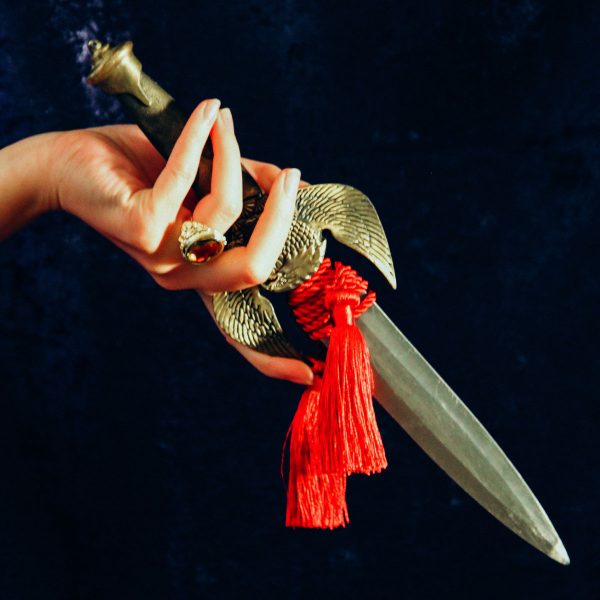
MM: Your new EP is called Regina. Is there a particular Regina you named it after or is that your middle name or… what’s the story there?
SB: Regina is just no one in particular. It’s meant to be in a pair with the first EP, which is Rex. So, when you put them together you have a king and queen. I find royalty and royal regalia like super inspiring for some reason. I love those old, cool paintings of various kings and queens. There’s such a presence about them. They’re very alluring. So, as far as the EPs go, Rex and Regina are kind of reflections of myself and the two sides that I have. I have the Rex side, the kingside, which is a little more raw and rough around the edges. That one – in comparison to Regina – that EP sounds unfinished like it was thrown together, but it’s an intentional path to take. As far as Regina goes, you have the more calculated yet graceful side of myself and the music on that one is much more developed and dynamic in my opinion. So, Rex and Regina – everybody likes to think of themselves as the king or queen of something, so I wanted to present the idea that maybe we’re both and this is what both sides of me sound like.
MM: Did Regina take a lot longer to make than Rex?
SB: Both EPs are actually one long album and then I just decided to cut it. So, the songs were all done around the same time. Those on Regina maybe took a little bit longer just to do some fine-tuning on some of the musical aspects of it. But, yeah, they were relatively the same amount of time.
MM: I only found a small number of your releases on Spotify, but I found a lot more on Bandcamp. Why aren’t they all on Spotify?
SB: Well, I’m unsigned and I actually have a label that is self-run by me. It’s a situation where I am the label and the artist and everything is self-funded. So, I try to be smart about which ones I put on Spotify because right now it just takes a lot of resources. And I don’t have those huge distribution contacts that I will one day. If I could, I would put more up there. I also think Spotify is my greatest hits kind of space and Bandcamp is more [for] if you’re a really hardcore L.A. Girlfriend fan and you want to listen to my progression and where I started. I use Spotify like the gateway. So, if you’re unfamiliar with me and you want some sort of idea then Spotify represents where I’m at presently whereas Bandcamp is like my yearbook if you will.
MM: The press release states that when making Regina, “What she found was someone who was incredibly strong, yet deeply hurt, but also a spirit that was determined and open at the same time.” What sort of things were you reflecting on when you were writing it?
SB: When these EPs came about I was at a crossroads of where I wanted to go musically. Where I wanted to be. But I found it was an opportunity to look back on where I’ve been and where I am now. And all the things that challenged me but also shaped me into how I think and feel today. And a lot of that was just growing up in the L.A. music scene. How that has its pros but it definitely has its cons as well. Music, especially as an independent artist, is very tough. Especially in L.A., it can get a little competitive. It shouldn’t be like that because there’s a place for all of us, but when you’re faced with that kind of challenge and attitude on a weekly basis it really affects your mental state. So, a lot of it was just reflecting on how I really felt about all of that. And I realized that, you know, this sucks. And with that, I’m big on writing about relationships. I was a person who didn’t have a lot of luck in the dating department. So, it was kind of like all of this rejection, living in a world of unrequited dreams, and how do I come to terms with that, and how do I move forward. You have today only. You can’t go backward. So, what do we do in this moment and how do we become the person we’ve always dreamed about?
MM: On “Possession” you sing, “though I have love for you, it don’t mean that we’re gonna last.” Are you the sort of person who goes into a relationship expecting it not to last?
SB: I used to be that person. That’s been the challenge of my current relationship. My current partner loves me deeply, but from past experiences I’m just always like that’s not [a] forever kind of thing. That kind of thinking is just shaped over years of people leaving. And not just romantically, like friends moving on and not telling you. So, yeah, I’m working on that now. To not think that way in real life, but it does make for a fun writing subject.
MM: How did “Ex” come about? Were you always planning to have an instrumental on the EP or did it start out as an experiment and develop into something you wanted to put out?
SB: “Ex” came about the same way as the other ones. I don’t view it as an instrumental, but I think it’s a cool, one of those sappy moments that I think every album I do should have. But that was more of a fun opportunity.
MM: Has any of your music been released on vinyl yet?
SB: Not yet. I came close to my last album, but, again, finding the resources to do that myself is challenging. But I hope to do that with my third album – I’m working on my third album right now – and the hope is that that comes out on some form of vinyl. I don’t really believe in the cassette tape format. I think it’s a little niche to do that because who has cassette players anymore? But, yeah, vinyl would be cool to have.
MM: Are you a fan of vinyl yourself?
SB: I wish I was more of a vinyl fan. I don’t have a collection of any sort. I respect so much the people who can walk into a record store and pick up something and be like, oh my God, such and such produced this, and it sounds like this, and this is why I need to buy it. That’s a skill I want to develop and it would be nice to have my own collection one day. I live in a tiny studio and half of it is my production rig and half of it is living stuff so I don’t really have room for a record player. But one day I would like to be more into music and have a really good collection and be able to listen to it and enjoy it.
MM: Looking at your bandcamp page, it would seem the first thing you put out was Imaginarium in 2012. Is that the first thing you released as L.A. Girlfriend or is there anything else?
SB: There’s actually one [previous]. I think I took it down because some of those songs I’m revisiting for this next album. My first release ever was released in 2011 when I started L.A. Girlfriend. It was called Youth and the fun thing about that EP was I produced and recorded it all in a day. And I just like mixed it and sent it out to whichever blogs would take it. And for being brand new, and saying screw it and just putting it out there, it did very well, press-wise. So, yeah, Youth was my first one and I’m hoping to resurrect a few of those songs for the new album so that’s why that’s not up there. It might be on my Soundcloud, though. I think I should probably check that sometime.

MM: So, what are your thoughts on your early releases when you look back on them now? Are you pretty happy with them or is there anything you wish you’d done differently?
SB: My earlier stuff, I really love. Because I made it at a time when I wasn’t so concerned about anyone really. What I mean by that is that as you grow in your career and get more press there’s more and more expectations. I think that’s why when bands release their first album it’s always great and then the ones that will follow will be OK, but they were very creative on the first. U2 is one of my prime examples. The Joshua Tree is amazing. Rattle and Hum was great. But then if you look at their modern day stuff it’s like music has changed over the years, but, for me, nothing really compares to Joshua Tree. That’s kind of how I look at my earlier stuff now. I think I had so much more freedom when I was writing back then. I’m in the process of doing that now, listening to old demos that were never released, and the lyrics that I wrote and sang, and some of them don’t make sense at all but they sound cool. So, I think my earlier stuff captured an innocence and a freedom that I’m trying to get back to. They’re almost like home base points. Like this is what you created in the past and you can create something again with as much independence and freedom as it has, but let’s take what you’ve learned over the past ten years and really amp it up and make it sound amazing. They’re not my holy grail tracks, but they’re definitely like touch points, like this is a what I need to go back to type of thing.
MM: Have you done a lot of playing live yet?
SB: It depends on which year you look at. I’ve been performing for the last ten years. Some years the shows were every other or every month and then nowadays it’s more scattered. And that’s just because I have a vision for my live shows and whenever I do a show I want it to be the best possible thing I can do. And people work hard for their money. I don’t want to do some half-assed show. I don’t want someone to come listen to me sing when they could’ve just listened to me on Spotify. I am wanting to give a performance. I do shows few and far between nowadays because the shows I do perform are like I want the time to really build it out and have visuals. Am I gonna have dancers? Am I gonna have a specific lighting set up? So, I’m at the point where I want every show to be special. And I want to do like a special experience. But then also I really want to focus on making music so when the time comes I can have these special performances and not just be playing songs to fill it up.
MM: Would you consider going on a tour if an artist you like asked you to open for them?
SB: Yeah, definitely. That’s definitely one of the goals in addition to actually headlining a tour. But, you know, I’ve played a lot in L.A. I’ve played pretty much almost every venue. So, nowadays I’m looking to places like New York in Brooklyn because I did a show in Brooklyn last year. I even did a show in Vegas. So, I’m looking outside of Los Angeles right now. Being an independent artist, the shows are gonna be few and far between, but, to me, it’s fun just to get out there. So, being on a tour would be amazing. The dream is to go to Europe one day and do a slew of shows there.
MM: How does playing in Las Vegas differ from playing in L.A.?
SB: I think in L.A. everyone’s in a band so you do have those fans who will come to a show and get into [it]. But then half of the room is the vibe of being sized up. And I think that’s something that not everyone likes to admit to, but compared to Las Vegas, that’s just pure enjoyment because the people are there to sing and dance with you. They’re not there to compare themselves to what you do. So, I loved Vegas shows. The last one I did, I had a few super fans that were requesting songs that were on older EPs from years ago. So, being able to perform for them just made it worth it in the end because you know they really enjoyed your music and they’re wearing your t-shirt. I think Vegas is interesting because I think we think of Vegas and we think of the big EDM DJs and the big clubs and [that] people come to do that type of scene. But then there really are people who are hungry for new bands. So, you talk to them and they’re like, “I’m so happy you’re here. This was an amazing night. Come back.” I feel like Vegas is much more open to what I’m doing and also just excited. And Brooklyn’s a different type of crowd. I was talking to a person – his name is Tony, I think, he lives in Brooklyn – and he was explaining to me how people in certain boroughs will go to a show and they won’t dance or sing or anything but they’ll give you this silent nod and it’s nothing negative. It’s just, yeah, they’re cool. Even talking to people over there it was just the same attitude of, “Oh my God, this is great, what you were doing. I’m a big fan. I try to see you when I’m in L.A.” I think anywhere outside of Los Angeles – at least for me so far – has been a welcoming vibe. What I’m doing isn’t for nothing. The thing I miss about L.A. is this real excitement for new music. Because I think a lot of people are concerned with how they’re doing compared to other people. I don’t think that’s what music is about. That’s not what this whole performance art entertainment is about. So, yeah, that’s a much longer conversation. [Both laugh]
RANDOM QUESTIONS:
MM: What was the first concert you went to and who did you go with?
SB: The first concert was actually Cheap Trick and I went with my parents. They were playing a festival in Colorado when I lived there. I was pretty young. It was an outdoor thing. So, a six or seven-year-old could get in easily. So, Cheap Trick was my first concert when I was seven.
MM: What was the last concert you went to?
SB: The last concert I went to – oh, man, I think it was when I saw Jay-Z in Las Vegas. I think that was my last one. That was really interesting. That was more for my partner, who’s a huge Jay-Z fan, but I was there to study the visuals. They had a really cool visual set up. So, yeah, it was a lot of fun.
MM: Are you currently binge-watching anything?
SB: Yes. A few things, actually. I think you’re supposed to binge watch one at a time, but I’ve been binging [a few]. I’ve got some weird stuff. There’s this show called Cults and Extreme Beliefs on A&E and basically, each episode goes into a different cult.
MM: Sounds interesting.
SB: Yeah, it’s super interesting. A lot of it is very messed up, but I’m definitely learning a lot. So, I’m definitely into those type of shows.
MM: What else have you been watching?
SB: I’ve been watching Pose, which is the show about the transgender ballroom culture in the ’80s in New York. That was really good. Handmaid’s Tale, I’ve been watching. And I just finished Billions. I don’t know if you’ve heard of that one. That’s like an investment drama.
MM: Yeah, I love that show. So, name a few movies you can watch again and again.
SB: Donovan’s Reef is a classic. I think John Wayne is in that one. It’s really about – I don’t want to get the story wrong – but it’s about these old navy soldiers who find this island and they just live on it. It’s a good movie. It’s an old one, but it’s one of those old, kind of funny, charming films. And, what else? Sixteen Candles. And Control, that Joy Division film that came out a few years ago, is very beautiful to watch.
MM: What do you do to work past writer’s block?
SB: I usually just consume myself with something else for a little bit. That could be like baking. I could have a baking phase where I make cupcakes all the time. Nowadays, it’s like working out. I’ll get really into going to classes. It’s just anything else I could do with my energy. Sometimes I do like arts and crafts to stay active. And, you know, listen to old music. I like listening to old musicals to get inspired. Usually, when I have writer’s block that means I’m a little burned out on the writing spectrum. So, I just try to revive myself out there.
MM: We’ve lost a lot of great artists during the past few years. Prince, Tom Petty, Bowie, Chester Bennington and Chris Cornell. And many others. Was there one particular artist’s death that hit you the hardest?
SB: I think the Prince death was probably the hardest for me just because I love Prince’s discography, especially when he was performing and writing in the ’80s, all those songs were so good. I think when he passed around that time was the first time I actually got to watch Purple Rain entirely. So, watching that at the end – I’m sure you’ve seen that one – at the end when he’s singing the song I was just sobbing. Like I understand it now. He’s the one I miss the most and he’s the one who falls into my range of influences. Yeah, that was a hard one to take.
MM: I always ask, too, if you could resurrect any one musician from the dead, who would you bring back?
SB: That one’s hard because the person I would resurrect you’d kind of think like would he want to be resurrected? If he did I would resurrect Ian Curtis from Joy Division because he, unfortunately, passed the day before Joy Division was supposed to go on a U.S. tour. So, it just would’ve been interesting to see how that band would’ve changed the soundscape of music if they had broke into it big back then. If that would’ve had any ramifications for how we make music and how we listen to music now. [But] if Ian Curtis was still here, would New Order be here? Would I be here? So, I would go with Ian Curtis to see what would’ve happened. But at the same time I understand his pain and everything so I obviously would want to respect his death.
MM: Final question. If someone was giving you a million dollars to give to charity and it all had to go to the same charity or cause, which would you give it to?
SB: I would give it to a Parkinson’s charity. I’d take Parkinson’s because my beloved nana who just passed away was diagnosed with Parkinson’s almost like 30 years ago. It was a long time. Seeing her, especially in her last few years, trying to live with it, broke my heart. I think there’s just so much we could do. So, that’s just more of a personal thing.
Most of L.A. Girlfriend’s music can be streamed and purchased from her Bandcamp page. Many are name your own price, too! Click here for that.
Visit L.A. Girlfriend’s Youtube Channel.

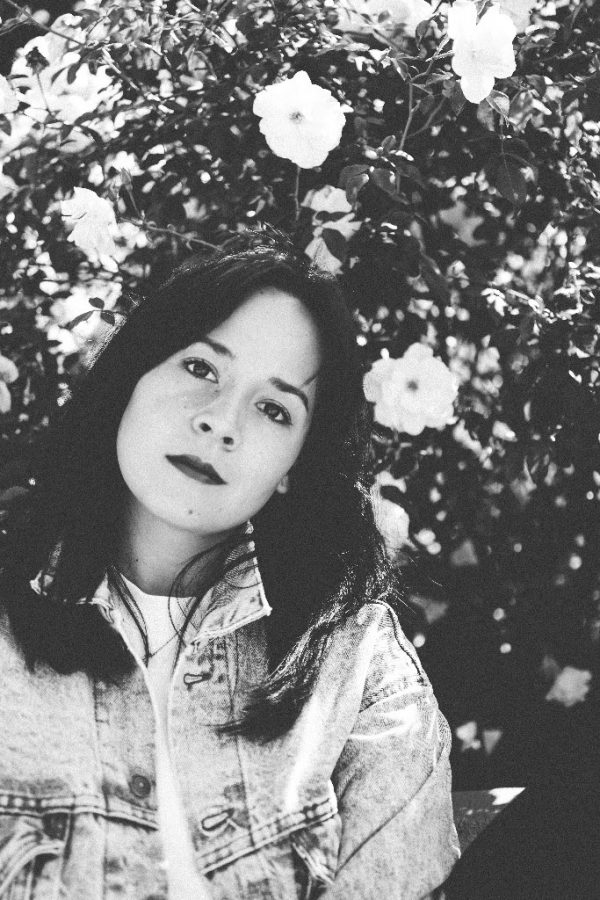
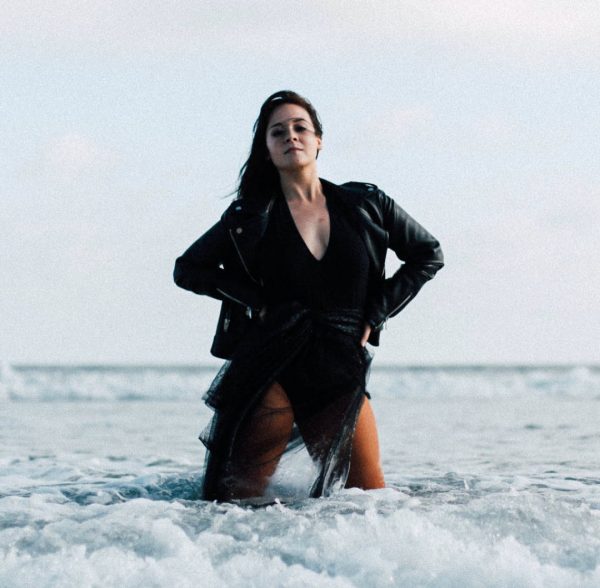
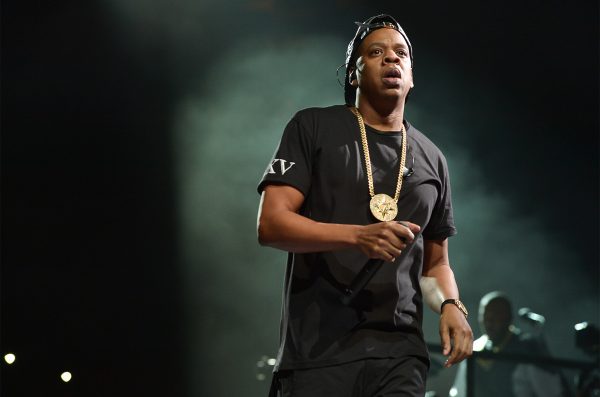
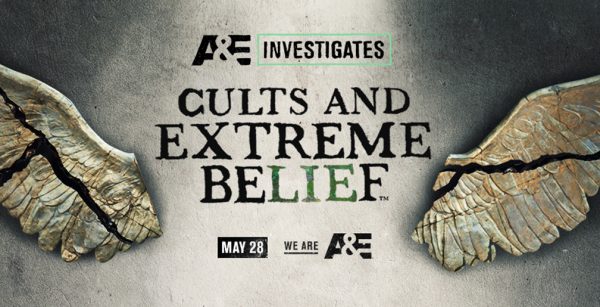
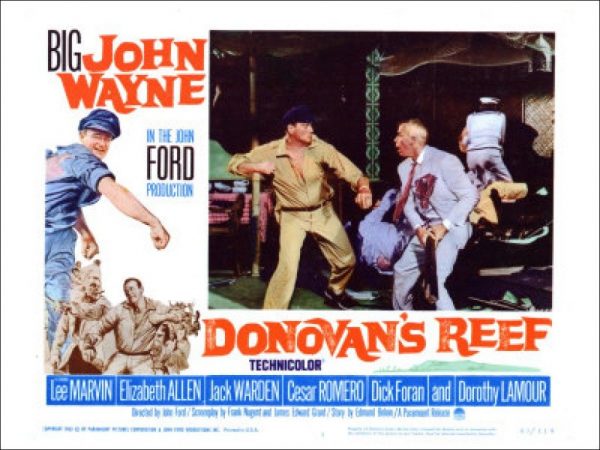
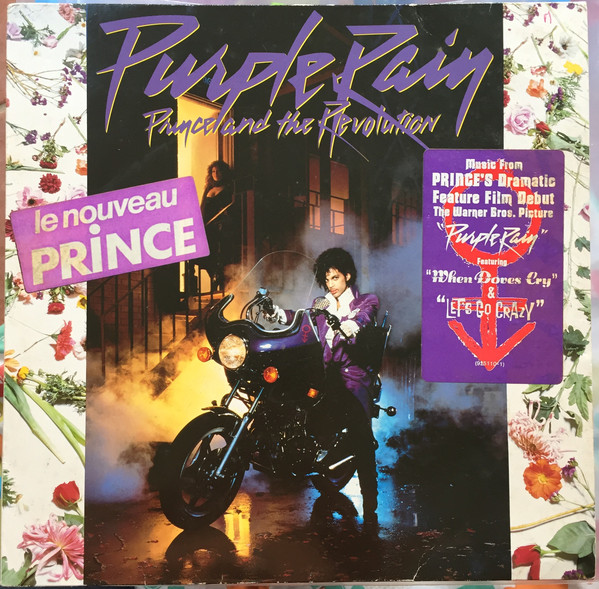

Leave a Reply to EcouterTrop Cancel reply